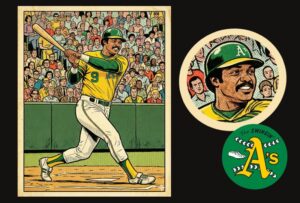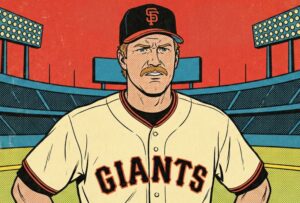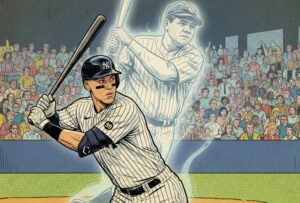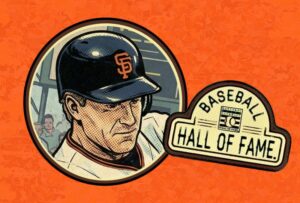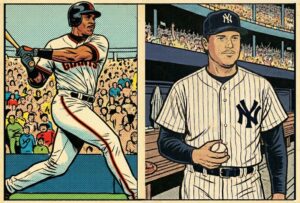Chase Utley was a relentless perfectionist without a weakness. In an era of baseball marked by analytics and specialization, Utley was a throwback—a player whose greatness defied the need for qualifiers or context. He wasn’t just a second baseman; he was the second baseman, embodying the heart and soul of the Philadelphia Phillies during his remarkable career. As Utley appears on the Hall of Fame ballot for the second time in 2025, after earning 28.8% of the vote on his first attempt, his candidacy prompts an enduring question: how do you measure a player who seemed to have no weaknesses?
Utley’s rise to stardom began in the mid-2000s when he emerged as the Phillies’ everyday second baseman. From 2005 to 2010, he was arguably the best player at his position, compiling six consecutive All-Star appearances and winning four Silver Slugger awards. But those accolades tell only part of the story. Utley’s excellence extended to every corner of the game—offense, defense, baserunning, and leadership.
“He played the game the way it was meant to be played,” said former teammate Jimmy Rollins. “Chase never took a play off. He made everyone around him better just by the way he approached the game. He was the ultimate professional.”
Power and Patience at the Plate
Utley’s offensive numbers speak for themselves. Across his 16-year career, he amassed 1,885 hits, 259 home runs, and 1,025 RBIs while slashing .275/.358/.465. From 2005 to 2009, he averaged 29 home runs and 101 RBIs per season, a level of production rarely seen at second base. He was more than just a power hitter, though. Utley’s approach at the plate was clinical; he combined power with patience, drawing walks while rarely striking out. His 2007 season stands as a masterpiece: a .332 batting average, 22 home runs, and a .976 OPS despite missing a month due to injury.
Yet, it was in October where Utley truly cemented his legacy. In the 2008 postseason, he hit .220 but delivered when it mattered most, launching a pair of home runs in Game 1 of the World Series against the Tampa Bay Rays. His defensive wizardry and heads-up baserunning in the series were just as crucial, helping the Phillies capture their first championship in 28 years.
A Defensive Maestro
For all his offensive prowess, Utley’s defense was just as impactful. He combined above-average range with quick hands and an almost telepathic understanding of the game. Advanced metrics back up his reputation: from 2005 to 2010, he led all second basemen in Defensive Runs Saved (DRS), posting 113 over that span. His glove work wasn’t flashy but was ruthlessly efficient—the kind of defense that wins games and championships.
One play in particular exemplifies Utley’s brilliance. In Game 5 of the 2008 World Series, with the game tied in the seventh inning, he fielded a ground ball and faked a throw to first before firing home to nail the runner at the plate. The play saved a crucial run and swung the momentum firmly in Philadelphia’s favor.
“That’s Chase,” said former Phillies manager Charlie Manuel. “Always thinking two steps ahead of everyone else.”
The Complete Baserunner
Utley’s contributions on the basepaths were just as significant. Though he was never the fastest player on the field, his instincts and aggression made him one of the most effective baserunners of his generation. He stole 154 bases in his career while being caught just 23 times, an astonishing 87% success rate. His slides were legendary, a mix of ferocity and precision that could turn double plays into singles and disrupt an opponent’s rhythm.
“You couldn’t find a weakness in his game,” said Rollins. “Pitchers hated facing him. Infielders hated him running the bases. It didn’t matter what the situation was—he always found a way to beat you.”
The Hall of Fame Question
In 2024, Utley made his debut on the Hall of Fame ballot and earned 28.8% of the vote—a respectable showing but short of the 75% needed for induction. His second year on the ballot in 2025 presents another opportunity for voters to recognize the totality of his career.
Utley’s case is compelling. Among second basemen, he ranks eighth all-time in Wins Above Replacement (WAR) with 64.5, according to Baseball-Reference. The seven players ahead of him are either Hall of Famers or likely future inductees. Yet, Utley’s candidacy faces challenges, primarily the fact that he fell short of traditional milestones like 2,000 hits or 300 home runs. Critics may also point to the injuries that truncated his peak years.
But to focus solely on numbers is to miss the essence of Chase Utley. His greatness transcended stats. He was the linchpin of a Phillies team that won five straight division titles, two pennants, and a World Series. He was a leader by example, the kind of player who elevated everyone around him.
“If you’re building a team from scratch, Chase is one of the first guys you pick,” said former teammate Cole Hamels. “He just made everything better.”
A Legacy Without Flaws
Chase Utley’s career was a masterclass in completeness. He hit for power and average. He fielded his position with precision. He ran the bases with intelligence and aggression. He played with a tenacity that inspired teammates and struck fear into opponents. Utley wasn’t the flashiest player or the loudest presence in the clubhouse, but he was the rarest kind of athlete—one without a weakness.
As the 2025 Hall of Fame vote approaches, Utley’s legacy looms large. He may not have reached every statistical benchmark, but his impact on the game is undeniable. He was a player who did everything well and left nothing on the field. In the end, that might be the strongest case for his enshrinement in Cooperstown.



